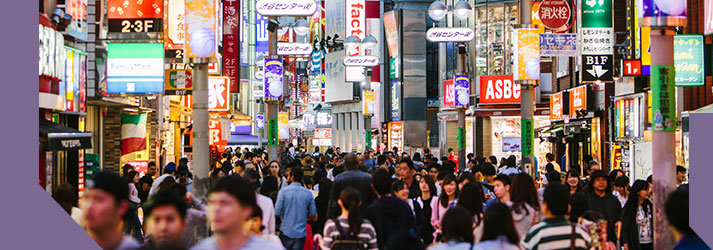Snap election in Japan
Investors were caught off-guard in September by the decision of Japanese Prime Minister Shinzo Abe to call a snap General Election in a move designed to reinforce his mandate and press ahead with his reform programme. The Governor of the Reserve Bank of Australia warned that high levels of debt in Australia could prove sensitive to an increase in interest rates.
- Prime Minister Abe announced a package of stimulus measures worth two trillion yen
- The Bank of Japan maintained its monetary stance
- South Korea expressed concern over North Korea’s hostility
“The yen has remained resilient in the face of mounting pressure from North Korea”
Investors were caught off-guard in September by the decision of Japanese Prime Minister Shinzo Abe to call a snap General Election in a move designed to reinforce his mandate and press ahead with his reform programme. Mr Abe also unveiled a package of stimulus measures worth two trillion yen.
The Bank of Japan (BoJ) maintained its monetary policy stance at its September monetary policy meeting. The central bank’s key interest rate remain at minus 0.1%, ten-year bond yields were capped at around 0%, and asset purchases are being maintained at an annual rate of 80 trillion yen. However, one policymaker out of a total of nine voted in favour of additional monetary stimulus. The BoJ believes that the country’s economy is growing “moderately, with a virtuous cycle from income to spending operating”.
The benchmark Nikkei 225 Index rose by 3.6% during September, while the Topix Index climbed by 3.5%. The TSE Second Section Index - representing medium-sized Japanese companies – rose by 2.6%.
The yen has remained resilient in the face of mounting pressure from North Korea. In spite of Japan’s relatively close proximity to North Korea, the yen is still regarded by many investors as a “safe haven” during periods of uncertainty. Meanwhile, despite intensifying worries in South Korea about the possibility of further hostility from its neighbour, the country’s benchmark Kospi Index rose by 1.3% over September. Towards the end of September, South Korea’s Foreign Minister Kang Kyung-wha expressed concern over “reckless provocations” from North Korea.
Governor of the Reserve Bank of Australia (RBA) Philip Lowe warned that “higher levels of debt… mean that household spending could be quite sensitive to increases in interest rates”, but pledged that the central bank will pay “close attention” to this. The RBA’s key interest rate has remained at 1.5% since August 2016 . Mr Lowe highlighted the substantial debt burden taken on by Australians to buy property and warned that medium-term risks have grown as debt levels have risen relative to income. Looking ahead, the central bank expects a “gradual decline” in the rate of unemployment, which should generate a recovery in wage growth. Growth in the labour market has become increasingly broadly based across sectors, suggesting that the country’s economy may be somewhat less sensitive to developments in the mining sector. The ASX All Ordinaries Index fell by 0.5% during September.









